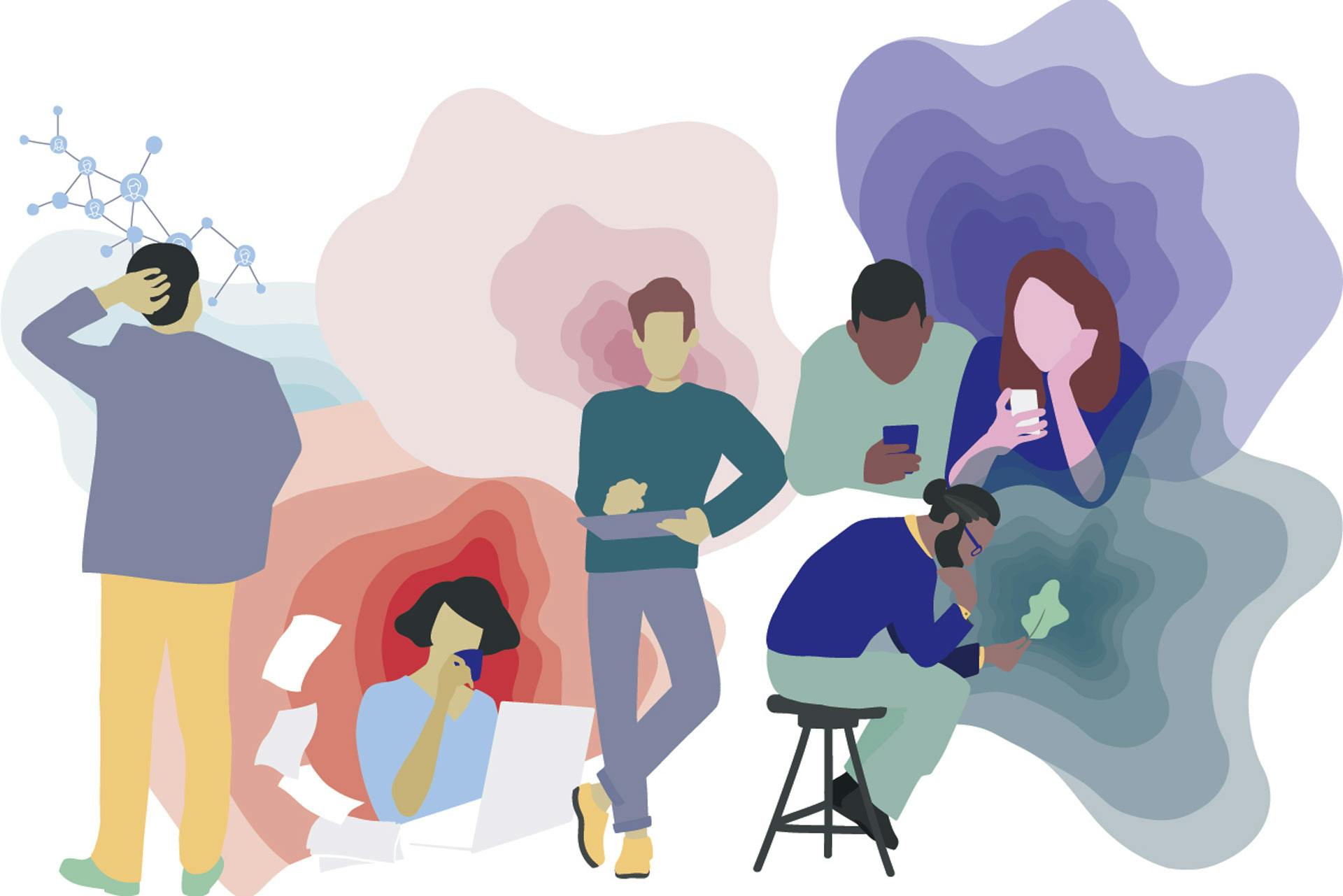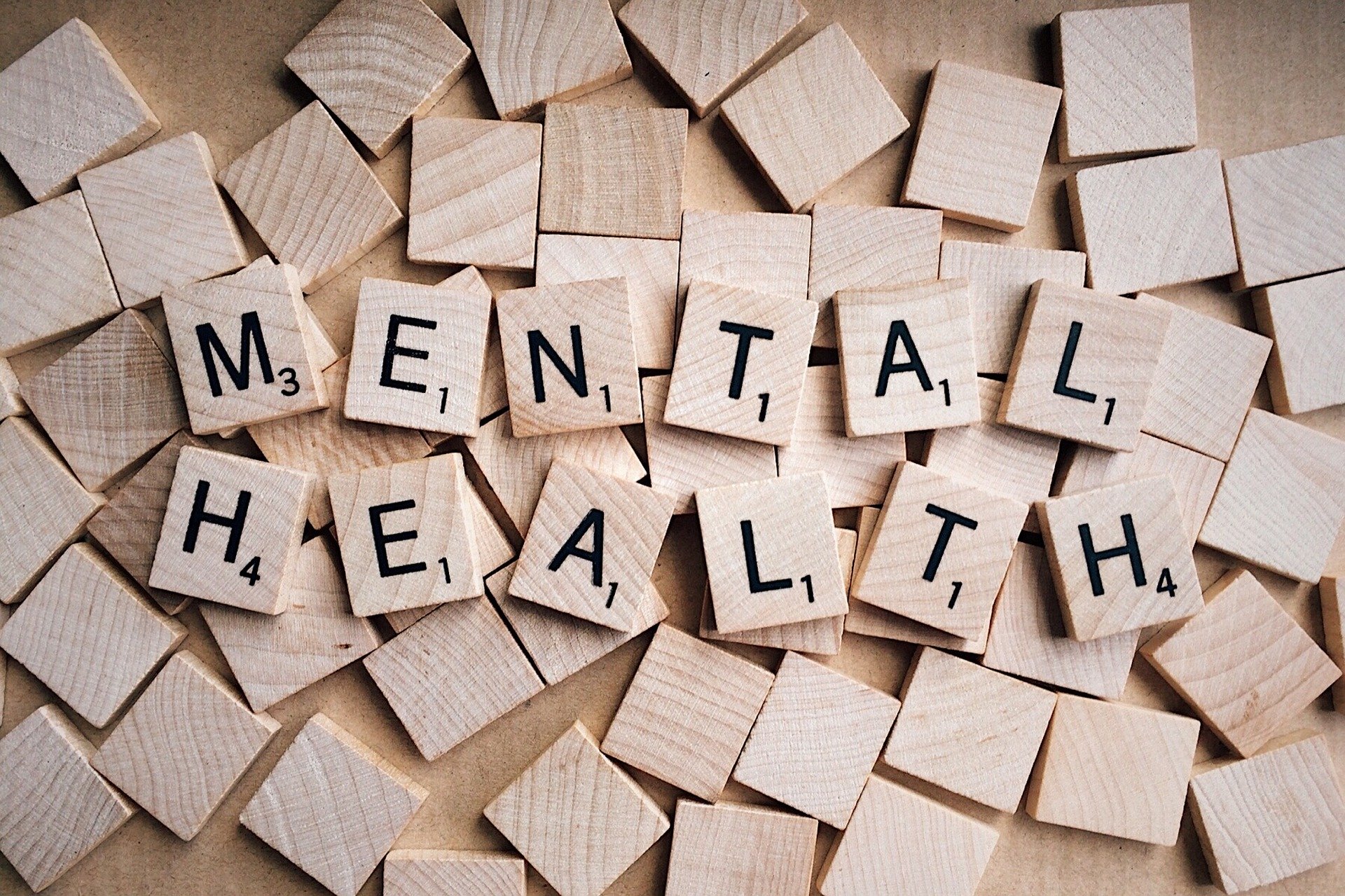
The absence of mental illness does not equal mental health. Just as the lack of physical illness does not equal physical wellness.
To reap the benefits of mental health, special attention to the growth of practices that improve mental health is necessary. There’s, unfortunately, no magic wand, magic pill, or special potion that will move someone along the continuum of mental health.
Personal intention and consistent practice of daily interventions are vital to realizing the benefits. Consider your mental health like a piggy bank. We will inevitably have interactions and experiences that are negative that deplete that bank. Those who have a consistent practice in boosting mental health have a larger account in which they regularly deposit those dividends.
Being “north of neutral” doesn’t happen by accident. Let’s explore where you can see some of these benefits. Improving your mental health improves not only you but also the world around you. The state of our mental health affects our relationships. Imagine the possibilities of realizing the benefits of positive mental health.
Before you read on, we thought you might like to download our 3 Positive Psychology Exercises for free. These science-based exercises will explore fundamental aspects of positive psychology including strengths, values, and self-compassion, and will give you the tools to enhance the wellbeing of your clients, students, or employees.
The Benefits of Mental Health

The benefits of intentionally practicing to improve mental health are a response to the chronic stress reported at epidemic levels around the world. Chronic stress has been proven to deteriorate the hippocampus (McLaughlin, Gomez, Baran, & Conrad, 2007).
This stress also leads to decreased concentration and memory, confusion, loss of sense of humor, anger, irritability, and fear. Obviously, stress is not good for the brain, and improved mental health practices can reduce the risk.
Other benefits of mental health include, but aren’t limited to:
- Reduction in anxiety.
- Improved moods.
- Clearer thinking.
- A greater sense of calm or inner peace.
- Increased self-esteem.
- Reduced risk of depression.
- Improvements in relationships.
The development of practical coping skills has never been more necessitated in this ever-changing world. Rather than continuing to simply soldier on, a focus on thriving through adversity is where mental health benefits can be achieved. Improved mental health has been well documented with the introduction of improved levels of physical fitness.
The fitness industry has decades of research showing the benefits of taking special and intentional care of one’s body. The concept of being mentally healthy is not necessarily new, but it certainly has more areas of growth in scientific research. This is likely because historically, medicine has studied what was wrong so that it could be cured.
A more recent approach to physical and mental well-being has been prevention. Exercise is a preventative activity for both physical and mental health. When you strengthen your body, there is less pain in aging. The same can be said for strengthening our mental health.
Benefits of mental health through physical fitness include, but aren’t limited to:
- Sharper memory.
- Clarity in thinking.
- Higher self-esteem.
- Better sleep.
- Increased energy.
- Stronger resilience.
- Increased BDNF (Brain-Derived Neurotrophic Factor), which improves neurotransmission.
Counseling has, unfortunately, had a stigma attached. The medical model was developed to fix what was “broken.” People receiving counseling are not broken. Human beings are malleable and can rewire themselves. A professional counselor can help with this plasticity by allowing the release of painful or unhelpful thoughts and behaviors.
Potential Benefits of Counseling:
- Improvement in communication and interpersonal skills.
- Greater self-acceptance.
- Increased self-esteem.
- Improved self-expression and management of emotions.
- Relief from depression, anxiety, and other mental health conditions.
- Clarity.
Coaching is another area where practitioners can increase the benefits of mental health. While coaching is not therapy, it can be very therapeutic. Having a trained coach can create areas of growth that clear the way for massive personal improvement.
For more information, you can also read our post on the scientifically proven Benefits of Counseling.
Potential Benefits of Coaching:
- Learning acceptance and self-appreciation
- Improved connection with self and others
- Simplifying life
- Reduced stress
- Harmony and peace
- Increased self-awareness
- Reduction in isolation
- Improvements in relationships
- Improved communication
- Overcoming procrastination
- Gaining work and or life satisfaction
- Increased self-reliance
- Improved decision making
- Mindset shifts
- Increased self-worth
- Improved time management skills
A Look at the Research
Exercise may be one of the most underused treatments for improving mental health. Research has shown that patients suffering from depressive or anxiety sensitive disorders benefit significantly from increased exercise interventions (Smits et al., 2008).
The Center for Disease Control recommends 150 minutes of moderate activity or 75 minutes of vigorous activity to reduce the risk of premature death. Astonishingly, most of the population fails to come close to meeting the guidelines to improve their well being.
The research has not determined which type of exercise is the most beneficial for mental health. Aerobic exercise strengthens the cardiovascular system but also releases serotonin to improve mood. However, weight training and mind spirit practices like yoga show great benefits as well.
Journaling is a powerful tool used as an intervention in many different areas of well being. The benefits can be seen not only in mental, but also physical wellness. Research has shown improvement in breast cancer patient recovery through the use of journaling.
Adolescent use of reflective journaling has shown increases in self-efficacy, self-regulation, and self-motivation. Reflective journaling has also been used to the great benefit of those working to overcome addiction.
The use of a journal offers a space to release inner fears and stress as a reflective process. The reduction of stress and unwanted negative thoughts are benefits that are seen through consistent practice. Journaling has also been proven to improve critical thinking skills.
There is a limited amount of empirical research in the area of coaching. However, concerning men, coaching has had significant forward progress. Men tend to seek help less actively than women (McKelley & Rochlen, 2007) but are more likely to seek coaching due to the reduced stigma attached. While coaching is not therapy, it can benefit participants with clarity, perspective shifts, and improvements to motivation in all areas of life.
Most Interesting Scientific Findings
A fascinating study done on mice shows the benefits of exercise on the reduction of sensitivity to social defeat and stress (Lehmann, Weigel, Elkahloun, & Herkenham, 2017). The study found the structures of the brain that have reduced function when facing chronic social defeat. Like humans, mice are sensitive to social interactions. The stress from the interactions that are defeating alter parts of the brain and can show up in humans as anxiety or depression.
Interestingly though, when the mice were introduced to regular exercise, their brains showed less reaction to the chronic social defeat and higher functionality in some regions of the brain. Chronic stress alters the brain. Exercise reduces sensitivity to that stress, allowing for the brain to function properly.
Another interesting study was done in Canada (Dwyer, Piquette, Buckle, & McCaslin, 2013), illustrating the benefits of journaling as a counseling tool for women overcoming a gambling addiction. Participants from this study were instructed on effective journaling practice, in addition to group counseling. Less relapse and improved growth in areas of overcoming thoughts around the addiction were reported in the results.
A school intervention study (Zyromski, Bryant, & Gerler, 2009) found reflective journaling promoted increased academic achievement and reduced instances of violence. This research was a qualitative analysis of student intervention targeting attitudes, behaviors, and peer relationships.
Results found that kids participating in the reflective activities of an online intervention changed the perception of peer relationships to improve interactions and requests for assistance.
Research in coaching, especially with chronic medical patients, has shown benefits in improved mental health. Accountability is huge! We all get bogged down in the day to day of life. A coach helps keep things on track and improves communication between doctors and patients (Leveille et al., 2009). A reduction in chronic pain was reported in a study on the benefits of having a health coach when facing severe medical problems.
5 Things You Can Do To Realize These Benefits
1. Move your body
If more people knew the benefits of exercise on avoidance of neurodegenerative diseases such as Alzheimer’s Disease, more people would be running to join a local gym. Exercise helps increase ROS (reactive oxygen species), resulting in decreases in the incidence of oxidative stress-related diseases (Deslandes et al., 2009). All disease has links to inflammation.
Regular exercise increases the body’s ability to reduce that inflammation, therefore, slowing the aging process.
Start small and grow your exercise practice slowly and consistently. Jumping in with excessive weight training or aerobic exercise can be harmful and lessen the willingness to continue with the practice. A slow, steady increase in levels of activity is highly recommended. Nobody becomes The Rock overnight.
2. Counseling
When thoughts and feelings are interfering with your daily life, advice can be very helpful. Navigating trauma, depression, and anxiety, or other strains on mental health is complicated. Doing it alone makes it even more so. Reaching out for help from a professional doesn’t mean you’re weak; it means you’re ready to start getting stronger.
3. Coaching
People come to coaching for a variety of reasons. Coaches specialize their practices, just as counselors do, to best serve their clients. Seeking the services of a coach can help clients realize their power in their actions and generate motivation to move from A to B, while space is held by a trained professional.
4. Journaling
There are a million ways to start a journaling practice. Keeping track of thoughts, actions, and motivations can be very powerful when actively reflecting on personal change. It helps adults and children alike. It also shines a light on daily actions and whether one is being honest with oneself.
5. 12 Intentional Activities
Engaging in the activities that come most naturally to a practitioner are specific ways to improve mental health. The benefits are outlined in The How of Happiness by Sonja Lyubmorisky. The “how” is always an individual approach but highly beneficial when intentionally focused.
- Savor life
- Nurture social relationships
- Express gratitude
- Commit to your goals
- Create coping strategies
- Practice acts of kindness
- Engage in flow experiences
- Cultivate optimism
- Practice spirituality
- Take care of your mind and body
- Learn to forgive
- Avoid over-thinking and social comparison
A Take-Home Message

The first step in realizing the benefits of mental health is recognizing the need for improvement. We all have work to do. There is no human (not even the Dalai Lama) who can say that they have achieved perfection in mental health. All humans face adversity, yet our ability to handle that adversity can grow like a muscle.
The benefits of mental health far outweigh the effort it takes to begin a practice for improvement. Whether it’s grabbing a friend to start a walking practice, or heading off to the store to pick out a notebook to start your journaling practice, you can begin today. We are all one decision away from the many benefits of mental health. Contact us for more.